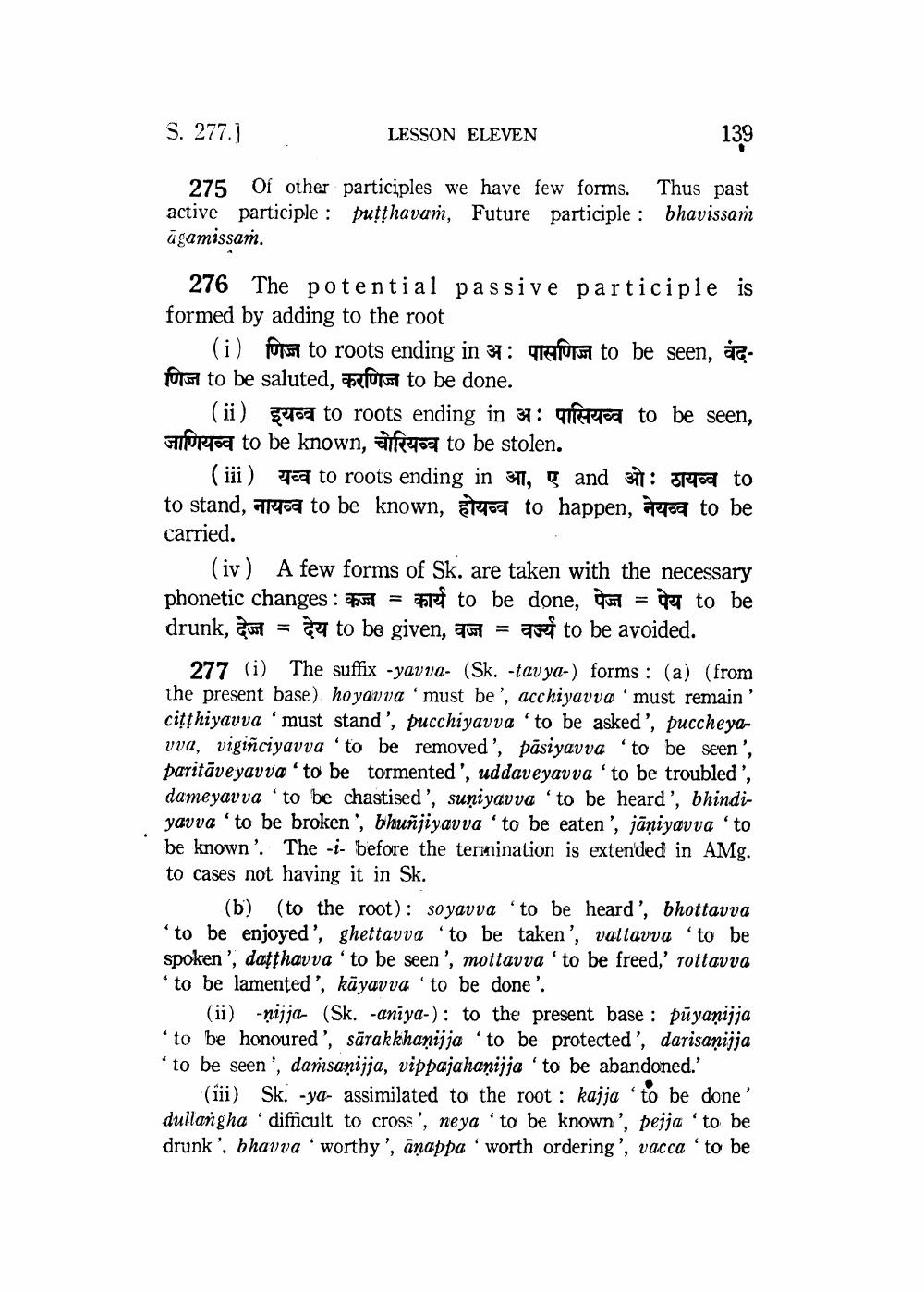________________
S. 277.1
LESSON ELEVEN
139
275 Of other participles we have few forms. Thus past active participle : putthavam, Future participle : bhavissam āgamissam.
276 The potential passive participle is formed by adding to the root
(i) णिज to roots ending in अ: पासणिज to be seen, वंदणिज to be saluted, करणिज to be done.
(ii) इयव्व to roots ending in अ: पासियव्व to be seen, Hillarroa to be known, alferon to be stolen.
(iii) यव्व to roots ending in आ, ए and ओ: ठायव्व to to stand, नायव्व to be known, होयव्व to happen, नेयव्व to be carried.
(iv) A few forms of Sk. are taken with the necessary phonetic changes : कज = कार्य to be done, पेज = पेय to be drunk, देज = देय to be given, वज = वयं to be avoided.
277 (i) The suffix -yavva- (Sk. -tavya-) forms: (a) (from the present base) ho yavva 'must be', acchiyavva 'must remain citthiyavva 'must stand', pucchiyavva 'to be asked', puccheyavva, vigiñciyavva 'to be removed', pāsiyavva 'to be seen', paritāveyavva 'to be tormented', uddaveyavva 'to be troubled ', dameyavva 'to be chastised', suniyavva 'to be heard', bhindiyavva 'to be broken', bhuñjiyavva 'to be eaten', janiyavva 'to be known'. The -;- before the termination is extended in AMg. to cases not having it in Sk.
(b) (to the root): soyavva 'to be heard', bhottavva 'to be enjoyed', ghettavva 'to be taken', vattavva 'to be spoken', dafthavva 'to be seen', mottavva 'to be freed,' rottavva to be lamented', kāyavva 'to be done'.
(ii) nijja- (Sk. -aniya-): to the present base : pūyanijja “to be honoured', sārakkhanijja 'to be protected', darisanijja "to be seen', dansanijja, vippajahanijja 'to be abandoned.'
(iii) Sk. -ya- assimilated to the root : kajja 'to be done' dullangha difficult to cross ', neya 'to be known', pejja 'to be drunk', bhavva 'worthy', anappa 'worth ordering', vacca 'to be




